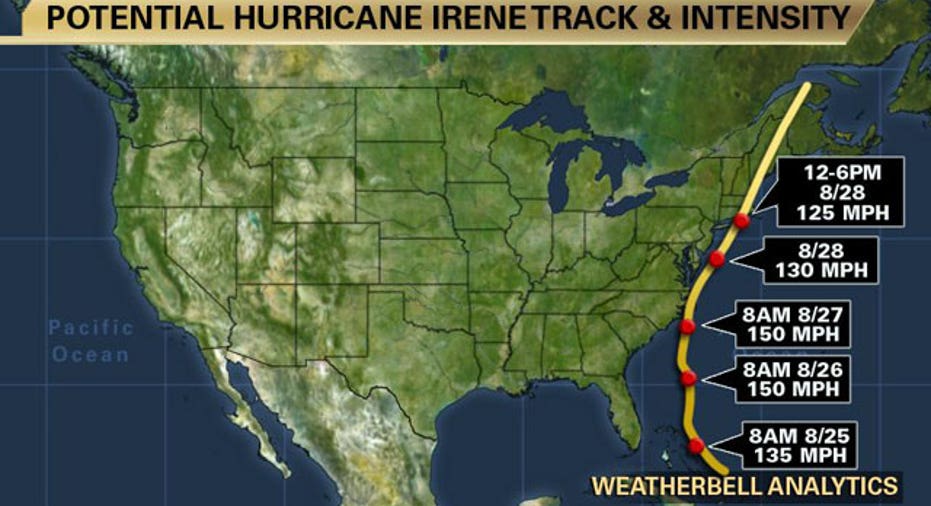You May Be Prepared for Disaster, but Is Your Money?

When preparing for a natural disaster, the necessities that usually come to mind are food, water and shelter. Few will think of finances, however, having access to your personal information and accounts can be crucial to surviving, according to experts.
A 5.9 magnitude earthquake hit Virginia this week, causing tremors felt from Boston to South Carolina, and Hurricane Irene is expected to hit the East Coast by the weekend. Both serve as real reminders that natural disasters can and do happen, even if you don't live in a typical disaster zone.
Ted Beck, president and CEO of the National Endowment for Financial Education (NEFE), said the reality is that most people won't think to prepare for a disaster unless they have experienced one. While having the essentials to physically help you survive the aftermath of a major quake or storm is important, Beck said financially preparing yourself is just as crucial.
"You will be emotionally stressed," he said of experiencing a disaster, "so the more prepared you are with knowing where your information is important. If you think it's not going to happen to you, then you need a wake-up call."
The first place to start is with insurance coverage, Beck said. Make sure your home is adequately covered, even if you don't necessarily reside in a disaster zone. NEFE suggests, at minimum, purchasing full-replacement insurance so the insurance company will pay to replace the residence up to the coverage amounts in your specific policy. Also, have your property appraised periodically to make sure you have the right coverage for your possessions and home.
Beck recommends taking video and photo documentation of your possessions. This way if you were to lose such items -- or even your home altogether -- due to a natural disaster, you can properly file claims.
"Knowing what was there is important, you need to have adequate records of what you have," he said.
If you do wind up being evacuated due to a disaster, you can contact your insurance company to make it aware of your situation and ask them if they will pay for temporary living expenses, NEFE said.
Next think about all of the important paperwork you may need in the aftermath of a disaster. Make copies of your insurance information and policies, a copy of your license, passport, your house deed, birth certificate and any other paperwork that you can think of. Credit card and bank account numbers are also important to have on record.
"Have a safe deposit box with copies of these papers in a secure, separate place," Beck said.
This type of a box costs around $30 at most financial institutions, NEFE said. Having a safe in your home is another option as well.
He also suggests looking at your insurance policy from your employer and look into what kind of disability insurance your workplace would provide, in case something were to happen to you. Also keep this information in your safe deposit box, in case you need to make claims through your health insurance company.
NEFE also suggests checking with your employer about their plan in the event of an emergency. You may be eligible to use the Family and Medical Leave Act if you are unable to work due to an injury or are caring for a family member after an emergency.



















